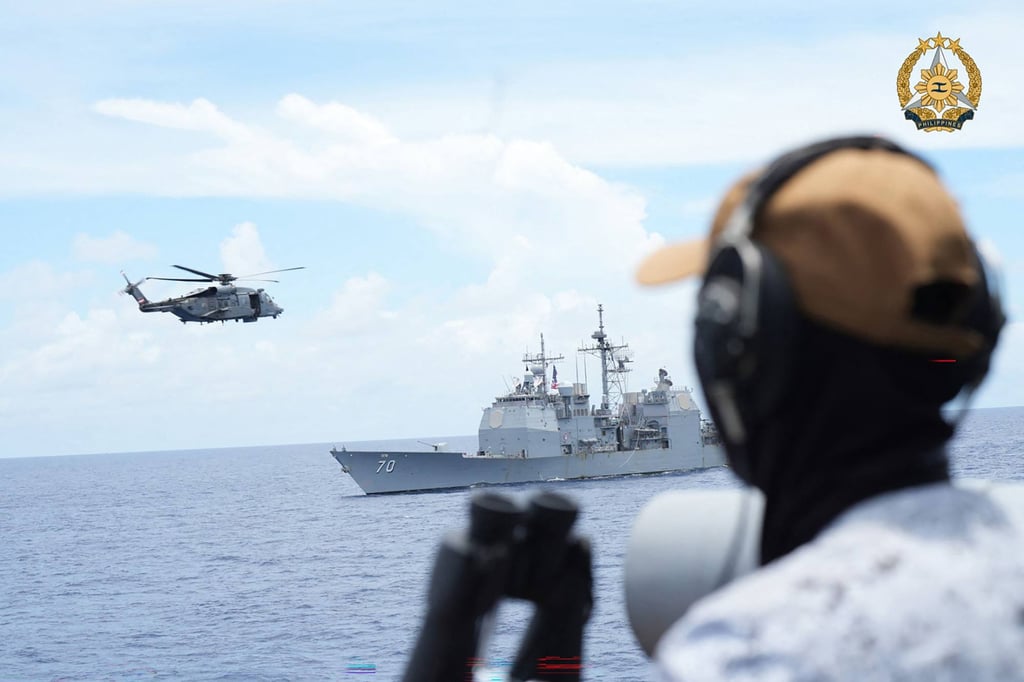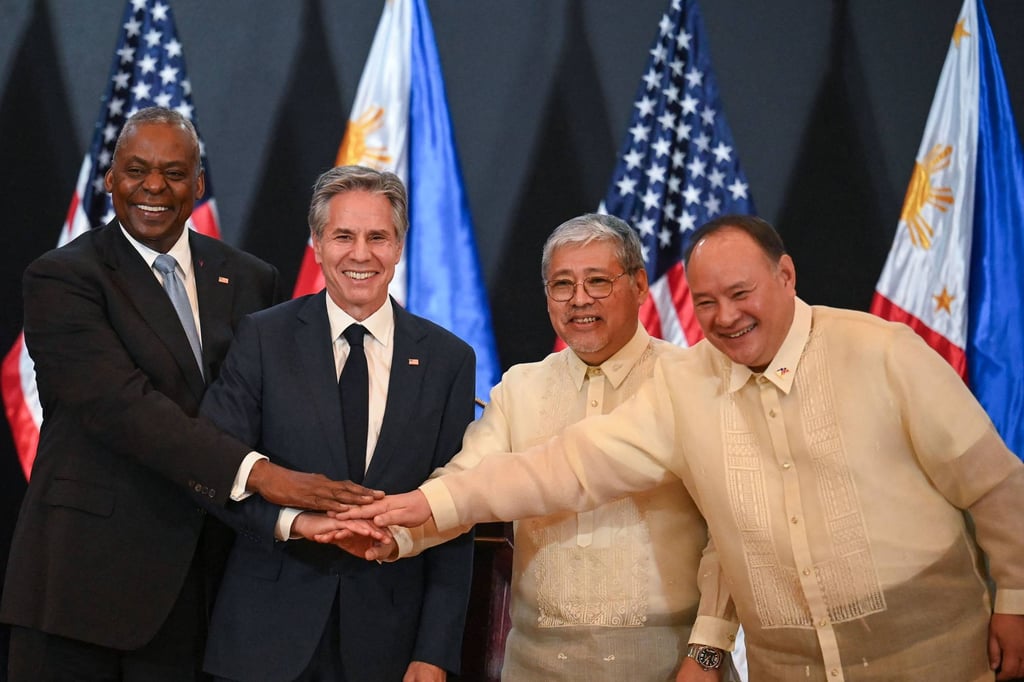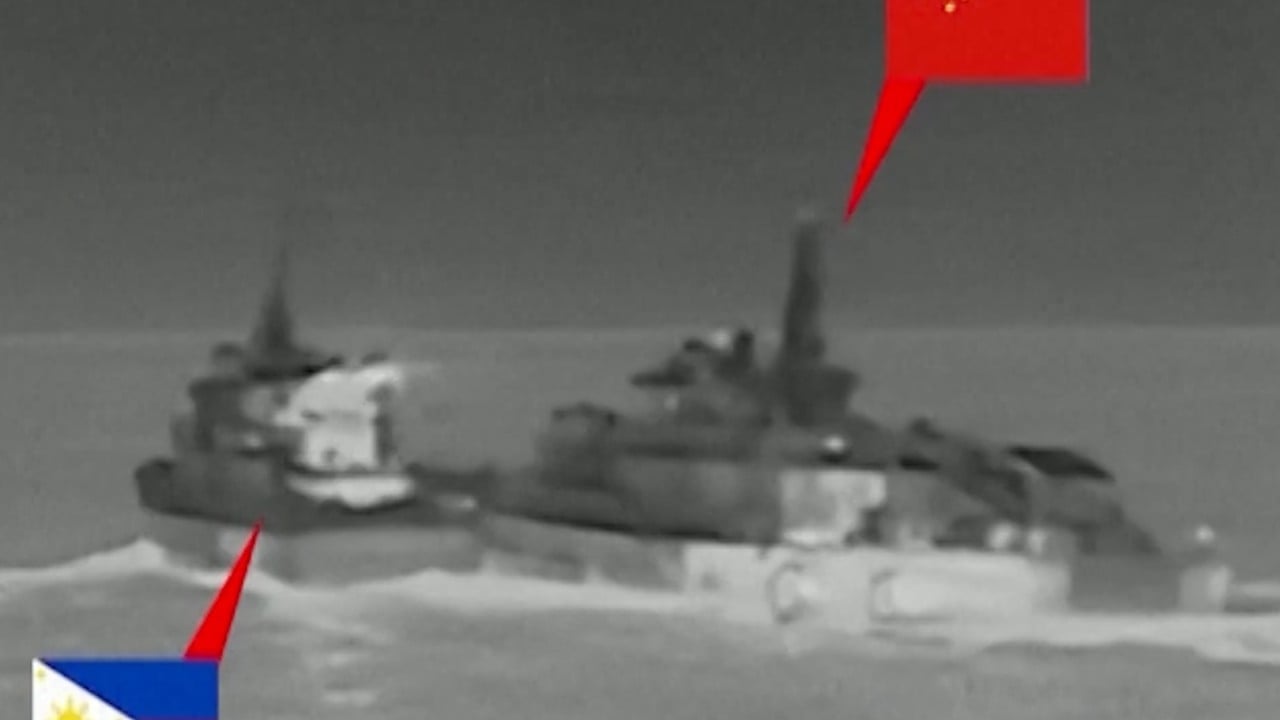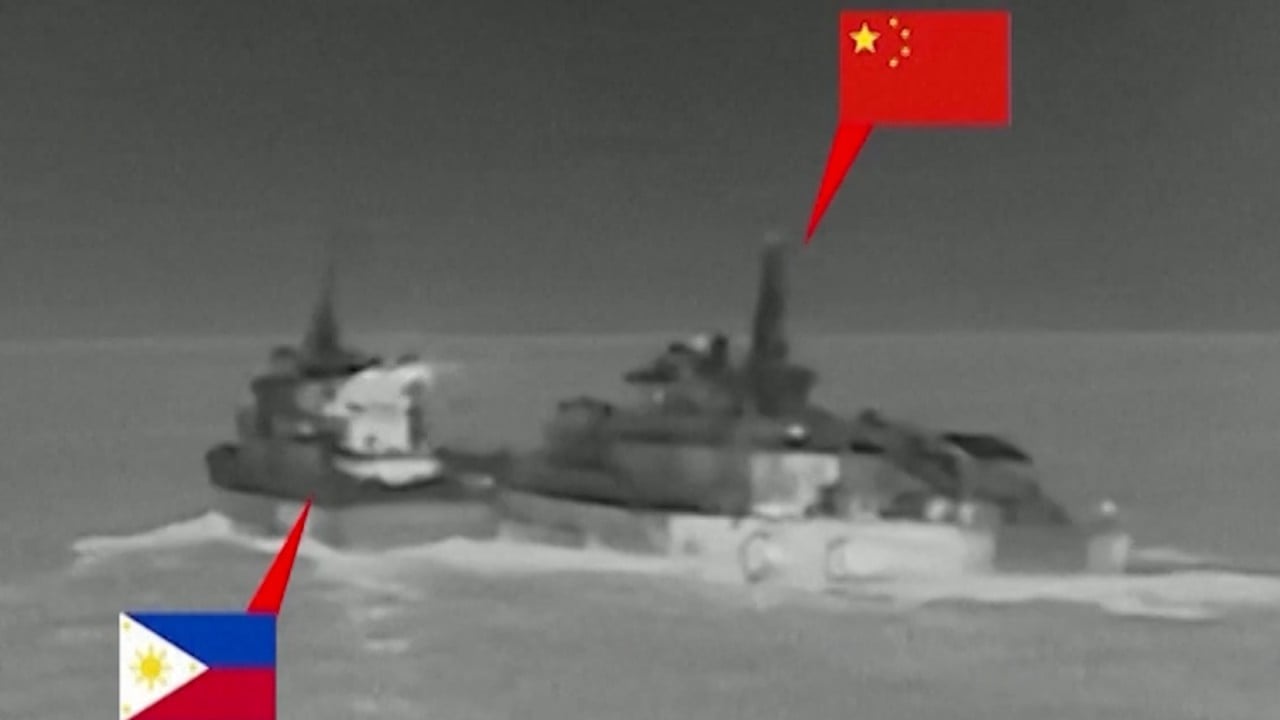A proposal for US ships to escort the Philippines in its resupply missions in the disputed South China Sea in line with the bilateral Mutual Defence Treaty has sparked concerns that such a move could risk “dangerous escalations” with Beijing.
Admiral Samuel Paparo, commander of the US Indo-Pacific Command, told reporters on Tuesday that the “escort of one vessel to the other is an entirely reasonable option within our Mutual Defence Treaty (MDT)”, depending on consultations between both countries.
On Wednesday, the Pentagon followed up on Paparo’s comment by saying the Philippines would “remain the lead for its own operations in the South China Sea” should it take up the US offer and Washington would “continue to provide significant advisory support in addition to our efforts to help modernise the Philippine military”.
Manila has been embroiled in a series of clashes with China, with the latest incident occurring on Monday, when Chinese and Philippine coastguard vessels collided near Sabina Shoal, resulting in damage to two of Manila’s ships as both sides traded blame for the incident.
Following the latest clash, the US State Department issued a statement reminding Beijing “that Article IV of the 1951 US-Philippines Mutual Defence Treaty extends to armed attacks on Philippine armed forces, public vessels, or aircraft – including those of its coastguard – anywhere in the South China Sea”.
Philippine military chief Romeo Brawner responded to the escort offer by saying the Philippines preferred to unilaterally run its missions and would exhaust all means to do so. But he did not close the door on alternatives, saying the Philippines would consider joint operations with not just the US but also with “other like-minded nations”.

Geopolitical analyst Matteo Piasentini said the Philippines might have to ask for American support if maintaining its outposts like the BRP Sierra Madre were to become impossible. Such an outcome would mean accepting the risk of US and Chinese ships confronting each other, Piasentini added.
Joshua Espeña, vice-president of the Manila-based think tank International Development and Security Cooperation, said the US Indo-Pacific Command would have to ensure that such escort operations would not risk stretching its naval forces.
Escorts by US vessels could provide the Philippines with “a force multiplier at the operational level” involving smaller warships such as frigates or destroyers, a tanker and a reconnaissance plane, Espeña said.
Such an option would be unprecedented given that the US has typically sent a single ship for freedom of navigation operations, he added.
Philippine Defence Secretary Gilberto Teodoro said the Mutual Defence Treaty should be interpreted more broadly to tackle “a dynamic and cunning adversary” in China.

Speaking on the sidelines of a forum on Monday, Teodoro said the Philippines needed to create enough military deterrence to protect its sovereignty against China’s aggression.
Espeña told This Week in Asia that the MDT “should be Manila’s strategic deterrent, not a fire-and-forget option every now and then”.
Manila needs to consider tapping support from other regional partners such as Australia and Japan even as it pursues diplomacy with China, according to Espeña.
If the Philippines were to take up the US escort offer, China would respond by scaling up its counter operations, Espeña said.
“This should be an expected paradox if one creates a decisive theatre in forging closer coordination between the Philippines and its allies and partners.”
Any action taken under the MDT should be considered carefully to serve as “necessary ammo” for the Philippines to boost its deterrent capabilities and bargaining power with China, Espeña said.
Joint Philippine-US resupply missions would enhance the chances of success for such operations while strengthening their alliance against the backdrop of the US-China rivalry and Washington’s rising interest in the South China Sea dispute, Piasentini said.
But such joint missions could risk serious escalations in the waterways and the Philippines might lack the capacity to manage a fallout, he added.
“Should an incident between a US ship and a Chinese ship occur, I doubt that Manila will have the capacity to stop potentially dangerous escalations in its exclusive economic zone [in the South China Sea],” Piasentini said.
Espeña said the Philippines should step up its partnerships with the US and other partners to make more ships and munitions and in other areas such as intelligence, surveillance and reconnaissance.
“A small US naval escort group can be an option but insufficient in the grand scheme of things.”



